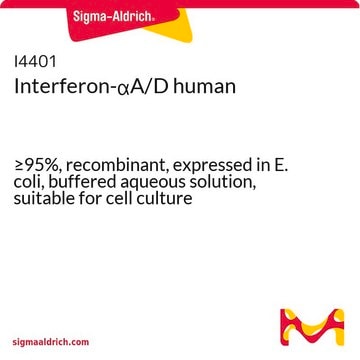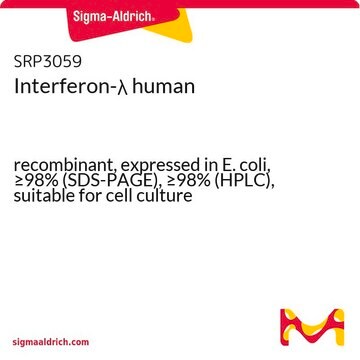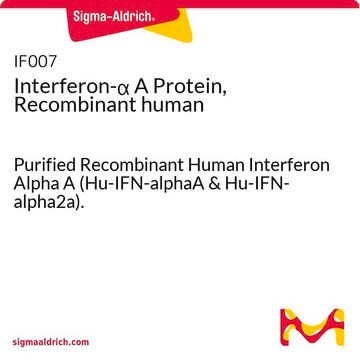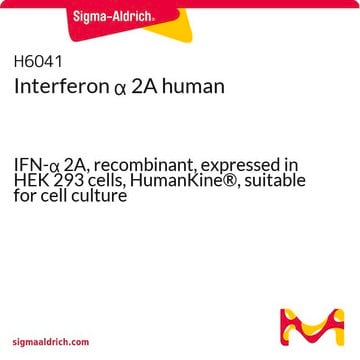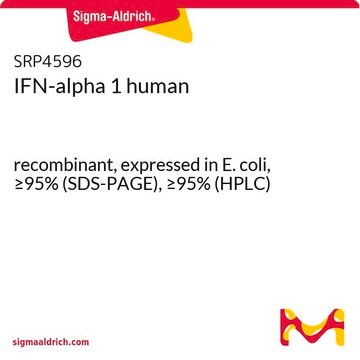Wichtige Dokumente
I4276
Interferon-αA human
≥95%, suitable for cell culture, buffered aqueous solution, recombinant, expressed in E. coli
Synonym(e):
IFN-αA, Interferon-α2A
About This Item
Empfohlene Produkte
Biologische Quelle
human
Qualitätsniveau
Rekombinant
expressed in E. coli
Assay
≥95%
Form
buffered aqueous solution
Mol-Gew.
19 kDa
Verpackung
pkg of 20 μg
Konzentration
≥0.2 mg/mL
Methode(n)
cell culture | mammalian: suitable
Verunreinigungen
endotoxin, tested
Farbe
colorless
UniProt-Hinterlegungsnummer
Versandbedingung
wet ice
Lagertemp.
−20°C
Angaben zum Gen
human ... IFNA2(3440)
Anwendung
- study the effect of Chikungunya virus on interferon-mediated JAK (Janus kinase)-STAT (signal transducers and activators of transcription) signaling
- study the effect of interferon-α and PRK2 (protein kinase C-related kinase 2) inhibitors on hepatitis C virus replication
- compare the effect of Monascus pigment derivatives on hepatitis C virus replication
Biochem./physiol. Wirkung
Physikalische Form
Hinweis zur Analyse
Lagerklassenschlüssel
10 - Combustible liquids
WGK
WGK 3
Flammpunkt (°F)
Not applicable
Flammpunkt (°C)
Not applicable
Persönliche Schutzausrüstung
Eyeshields, Gloves
Analysenzertifikate (COA)
Suchen Sie nach Analysenzertifikate (COA), indem Sie die Lot-/Chargennummer des Produkts eingeben. Lot- und Chargennummern sind auf dem Produktetikett hinter den Wörtern ‘Lot’ oder ‘Batch’ (Lot oder Charge) zu finden.
Besitzen Sie dieses Produkt bereits?
In der Dokumentenbibliothek finden Sie die Dokumentation zu den Produkten, die Sie kürzlich erworben haben.
Kunden haben sich ebenfalls angesehen
Unser Team von Wissenschaftlern verfügt über Erfahrung in allen Forschungsbereichen einschließlich Life Science, Materialwissenschaften, chemischer Synthese, Chromatographie, Analytik und vielen mehr..
Setzen Sie sich mit dem technischen Dienst in Verbindung.